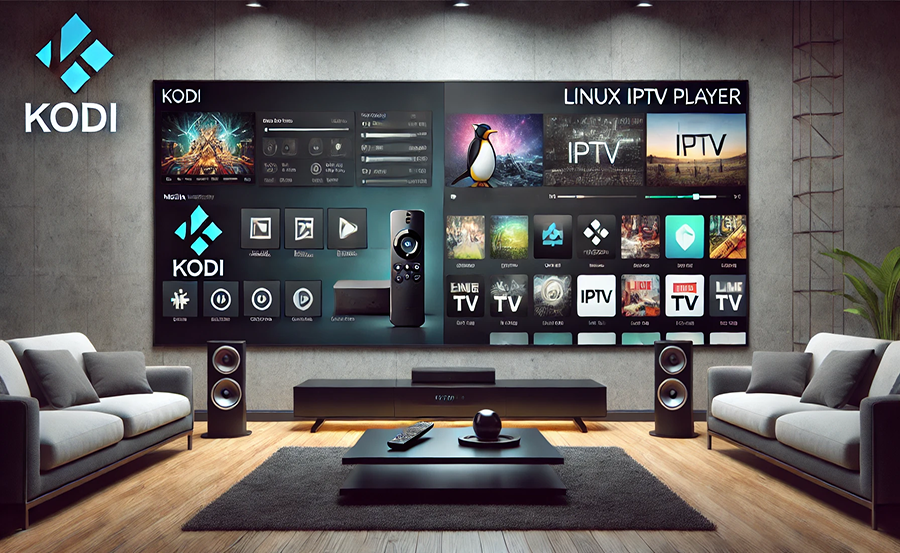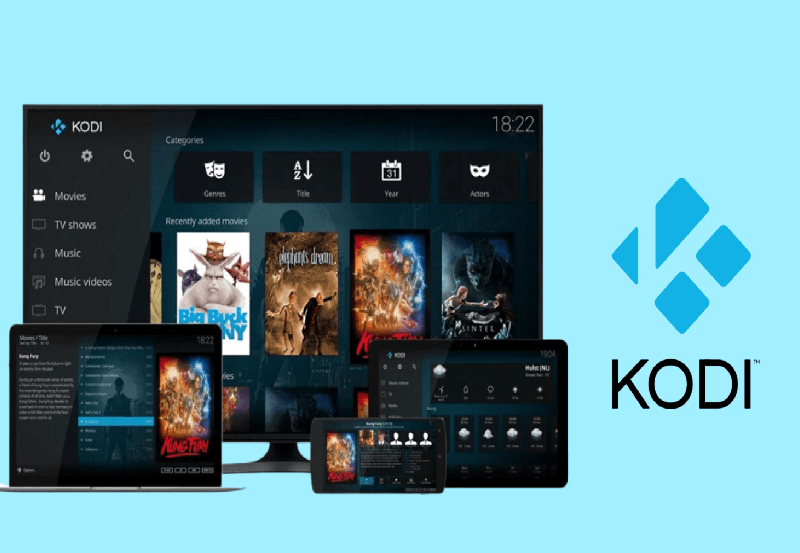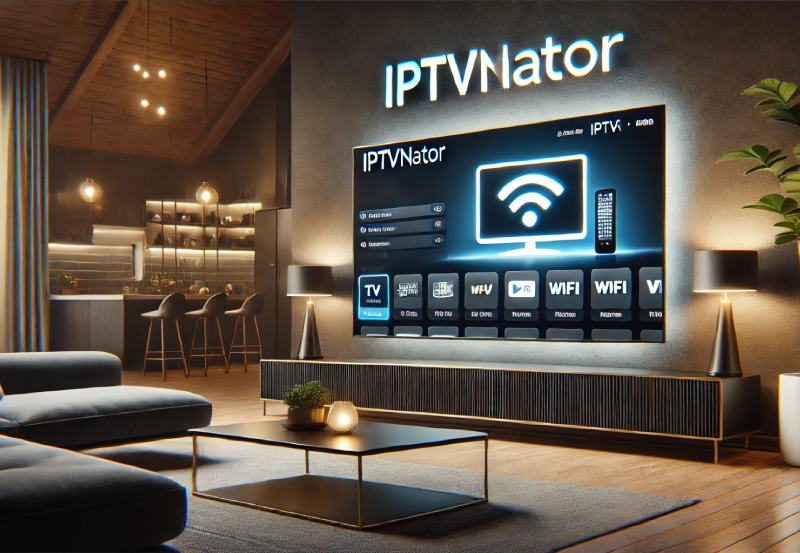In the ever-evolving landscape of digital media and entertainment, keeping up with the latest tech-trends can be a daunting task. For those standing at the crossroads of IPTV innovation, the choice between Kodi and Linux-based IPTV players poses an intriguing dilemma. Whether you’re an industry professional or a technology enthusiast, understanding which platform best fits your needs is crucial. Let’s journey through the world of IPTV on Smart TV and explore how these two powerhouses measure up.
Understanding IPTV and Its Rise
The meteoric rise of Internet Protocol Television (IPTV) has redefined our viewing habits. It’s not just about watching television anymore; it’s about having everything at your fingertips—program guides, on-demand content, and seamless streaming across multiple devices. But let’s break it down a bit. What really is IPTV?
IPTV: The Basics
So, what makes IPTV the buzzword in modern media consumption? At its core, IPTV delivers television content via Internet Protocol networks rather than traditional satellite or cable formats. This shift not only enhances accessibility but also offers a more customizable user experience.
Quick Tip:
Never miss a live event again! Subscribe to Affordable IPTV services for sports enthusiasts worldwide.
Essentially, IPTV transforms how we interact with television. Instead of tethered to preset schedules, viewers now enjoy the flexibility to watch what they want, when they want. It’s an on-demand world, and IPTV is in the driver’s seat.
The Impact on Smart TVs
Smart TVs have become ubiquitous in modern households, paving the way for IPTV’s growing popularity. Their compatibility with an array of IPTV apps and services makes them an ideal companion for tech-savvy viewers. Here’s why they matter:
- Ease of use: Integrating IPTV services is often straightforward, requiring minimal technical know-how.
- Versatility: With diverse apps like Kodi, users access varied content on a single device.
IPTV on Smart TV offers seamless integration, making it a must-have for those seeking an enriched viewing experience right from their living room.
Kodi: The Open-Source Dynamo
Kodi stands tall as an open-source media player renowned for its versatility and robust community support. It serves a multifaceted role not just as an IPTV player but as a powerhouse of limitless media opportunities.
The Strengths of Kodi
Kodi’s biggest draw, perhaps, is its vast library of add-ons and plugins which exponentially expand its functionality. Here’s what makes Kodi a crowd favorite:
- Customization: With numerous skins and themes, users tailor Kodi to their aesthetic preferences.
- Extensive Add-ons: From live TV to music and games, the possibilities are endless.
This adaptability is why many choose Kodi, but there are considerations to keep in mind when placing it head-to-head with Linux alternatives.
Potential Drawbacks
While Kodi boasts widespread acclaim, it isn’t without its pitfalls. Depending heavily on third-party add-ons might lead users down the path of unofficial sources, raising security concerns. Additionally, setup and maintenance can be daunting for beginners. Is this a dealbreaker? Not necessarily, but it’s a factor worth exploring.
Linux-Based IPTV: The Challenger
On the other side of the ring, we have Linux-based IPTV players. Unlike Kodi, which is more mainstream, Linux solutions often appeal to enthusiasts comfortable with open-source environments. Let’s see how they hold their ground.
Strengths of Linux IPTV Players
Linux IPTV players offer unmatched stability and reliability, thanks to their robust, community-driven development. Key benefits include:
- Customization: With a broader scope for tweaking, Linux players cater to the needs of tech-savvy users.
- Resource Efficiency: Minimal memory usage ensures a lag-free, smooth viewing experience.
By leveraging the dynamism of Linux, users create a personalized and efficient IPTV system that aligns with their viewing habits.
Challenges to Consider
Despite their technical advantages, Linux-based IPTV players pose challenges, primarily in terms of user accessibility. Unlike Kodi, which offers a relatively user-friendly interface, Linux players sometimes require advanced technical skills for optimal configuration. This steep learning curve can deter less tech-oriented users, prompting many to weigh their options carefully.
Device Compatibility: A Key Decider
In the race between Kodi and Linux’s finest, device compatibility remains a central consideration. Understanding how each player aligns with your existing tech ecosystem could be the deciding factor.
Kodi’s Compatibility Spectrum
Kodi’s versatility shines through in its ability to integrate seamlessly with numerous devices and platforms:
- Support for major operating systems including Windows, macOS, and Android.
- Broad compatibility with gaming consoles like Xbox One.
This extensive compatibility allows users to take IPTV to the next level of fun, without technical hurdles.
Linux’s Device Ecosystem
Conversely, Linux-based IPTV players, while powerful, often cater to a niche audience. They flourish in environments enthusiastic about DIY projects and open-source software. Yet, their device integration can be intricate, demanding a more cautious approach.
For tech enthusiasts keen on tweaking and customization, Linux solutions certainly have a compelling draw.
Usability and User Experience
Let’s address another critical factor—usability. How intuitive is each platform from a user standpoint? This aspect significantly influences user loyalty and satisfaction.
Kodi’s User Interface
Kodi prides itself on a clean, user-friendly interface that appeals to various user profiles. Whether you’re experienced or a novice, navigating the platform is generally straightforward:
- Clear menus and search functionality enhance the user experience.
- Consistent updates maintain a fresh, modern look.
However, first-time users might find initial setup slightly cumbersome, which could be a minor setback.
Linux IPTV Usability
In contrast, Linux-based players often prioritize performance over aesthetics, which sometimes translates into a less polished UI. Their appeal lies in their functionality, demanding a degree of technical prowess that might alienate occasional viewers.
Although the customization potential is unlimited, it’s essential to consider whether you’re prepared for the hands-on investment it requires.
Community and Support
An often overlooked yet vital component of platform selection is the support system. For Kodi and Linux IPTV players, community involvement plays a pivotal role in enhancing the user journey.
Kodi’s Global Community
Kodi’s vibrant community is one of its greatest strengths, offering extensive resources and forums to assist users. Whether troubleshooting a glitch or exploring new features, help is just a click away:
- Access to a wide range of documentation and tutorials.
- Active forums and user groups for real-time support.
This communal spirit reinforces Kodi’s reputation as a user-centric platform.
Linux’s Encouraging Network
Linux, with its rich legacy in open-source development, naturally invites a robust community-driven framework. Users often engage in collaborative projects and discussions:
- Contributions to software updates and enhancements.
- Shared repositories and custom plugins.
Such engagement not only fosters innovation but also encourages a continuous learning environment.
Security and Reliability
Finally, in any technological pursuit, security and reliability cannot be underestimated. With Kodi and Linux IPTV, understanding each platform’s approach to these aspects is paramount.
Kodi’s Security Protocol
While Kodi offers a responsive platform, its reliance on third-party add-ons has often placed it under scrutiny. Taking precautions is essential:
- Stick to official add-ons whenever possible.
- Regularly update software to the latest version.
With conscientious usage, Kodi remains a robust choice despite its vulnerabilities.
Linux’s Robust Framework
Linux-based IPTV players typically present fewer security concerns thanks to their inherent open-source nature. The vigorous peer-reviewed development cycles naturally bolster their reliability:
- Community involvement in security enhancements.
- Auditable source code allows for immediate issue resolution.
This structure significantly reduces the risk profile, making Linux an attractive prospect for those prioritizing security.
Stepping Into the Future of IPTV
Traversing the realms of Kodi and Linux IPTV players uncovers each platform’s unique strengths and challenges. While Kodi encapsulates accessibility and adaptivity, Linux’s steadfast reliability cannot be underestimated. The decision ultimately hinges on one’s personal preferences, technical confidence, and entertainment aspirations. Both platforms have transformed the IPTV landscape, offering a choice-rich ground for consumers. In an age where information is a click away, deciding which—a harmonious blend of intuition and intellect—leads the way in redefining viewing narratives.
FAQ Section

What is IPTV?
IPTV stands for Internet Protocol Television, a system where TV services are delivered over a network using Internet Protocols. This approach allows for more interactive and on-demand content, making traditional cable subscriptions less essential.
How does Kodi support IPTV on Smart TV?
Kodi, with its extensive library of add-ons, enables users to stream IPTV content directly on Smart TVs. Its compatibility with various devices enhances user accessibility and offers a range of viewing options, tailored to personal preferences.
Is Linux better for IPTV than other platforms?
Linux-based IPTV solutions often offer more control and customizability compared to proprietary systems. However, this generally requires more technical expertise, potentially limiting its user base to those comfortable with DIY adjustments and open-source software management.
Are Kodi and Linux IPTV players legal to use?
Both Kodi and Linux IPTV players themselves are legal to use. However, the legality often depends on the content accessed through these platforms. Using official and approved add-ons helps ensure compliance with broadcasting laws.
What devices are compatible with Kodi and Linux IPTV?
Kodi supports a wide range of devices including, but not limited to, Windows PCs, Android devices, and Smart TVs. Linux IPTV players, while slightly more restrictive, can generally be integrated into systems that support open-source software environments.
Can Kodi and Linux ensure a virus-free experience?
Yes, when used responsibly. Kodi recommends sticking to official add-ons to avoid malware risks. Linux’s open-source nature means security fixes can be quickly implemented by the community, reducing potential threats.
How can I enhance my IPTV experience with these platforms?
To elevate your IPTV experience using Kodi or Linux players, stay engaged with community forums to learn about new add-ons and enhancements. Regularly updating your system and exploring custom skins can also refresh functionality and appearance.
Troubleshooting Common IPTV Issues





